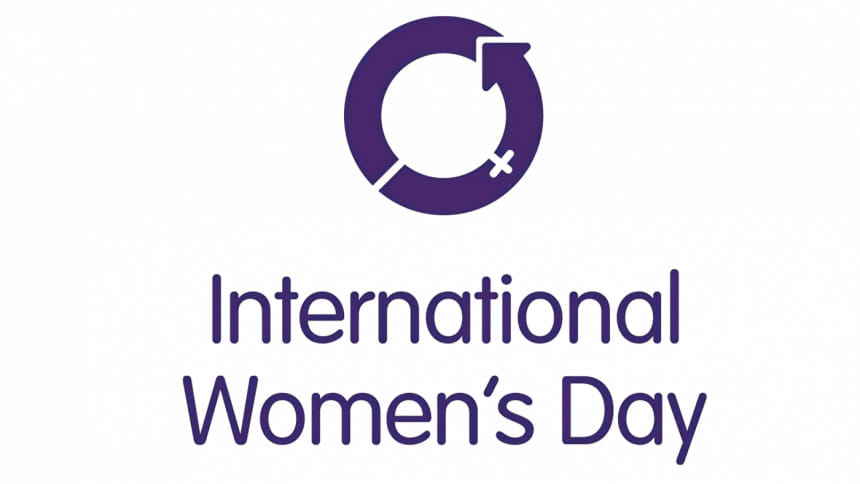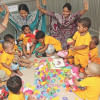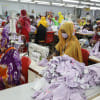Women still made to lag far behind

While women in Bangladesh have been making remarkable strides in various fields, they still seem to be falling behind when it comes to working in the administration.
The 2021 government report prepared by Bangladesh Bureau of Statistics revealed how the percentage of female officials in the administration cadre is far lower than the males.
The report, titled "Gender-Based Employment and Wage", said the percentage of female officials in public administration was 19.62 percent, while it was 22.64 percent in the field administration.
Out of 6,310 posts of senior secretary/secretary, additional secretary, joint secretary, deputy secretary, senior assistant secretary and assistant secretary under the public administration ministry, the number of male officials is 5,072, while that of women is just 1,238.
Out of 742 divisional commissioners, additional commissioners, deputy commissioners, additional deputy commissioners, and upazila nirbahi officers, only 168 are women.
The report highlighted a significant gender imbalance in high-level positions – the higher the position, the fewer the number of women.
For instance, there are only 10 female secretaries compared to 66 male officials, and there are no female divisional commissioners or additional commissioners.
Despite the exceptional performance of the only
former female divisional commissioner Dr Mosammat Nazmun Ara Khanum, who now serves as the secretary of the food ministry, no other female has been appointed as a divisional commissioner since then.
Additionally, the report found there are some ministries where the representation of women is particularly low, with a negligible percentage of female officers and staffers.
Mentioning the "Gender Budget Report 2019-2020" of the Finance Division, the report also showed that the fisheries and livestock ministry has the highest percentage of female officials at 27.59 percent, while the primary and mass education ministry has the lowest at only eight percent -- down from 14 percent in 2017.
It further highlighted that female staff representation is insignificant in almost all ministries, indicating a widespread deprivation of opportunities for women.
A comparison of data between 2017-18 and 2018-19 revealed a worrying trend, with a decrease in the percentage of women in staff positions, suggesting that fewer women are being appointed to these roles.
The report mentioned that policymakers should look into the reasons behind such employment gaps in the administration.
According to Planning Commission member Mosammat Nasima Begum, the number of women applying for civil services is fewer than the males because the number of female students who completed their tertiary education is much lower than their male counterparts.
Her claim is further validated by the Labour Force Survey 2016-17, which showed that the percentage of females who completed their tertiary education is less than half of the males, and the ratio is worse in the rural areas.
Girls who dominated their secondary-level gradually fell behind in higher secondary and tertiary levels, the survey showed.
Nasima added that a lack of encouragement from families is mainly what keeps women from participating in the civil services examinations.
"For example, when a son in the family completes his graduation, the parents treat him in a way that getting a government job should be the only choice for him. But for their daughters, they consider marrying them off instead."
About employment discriminations, she said there might be a level of inequity as women are still not appointed in some core positions, such as cabinet, land or home secretary.
"But this never means women are incapable of shouldering these duties."
In the police administration, Deputy Inspector General Shamima Begum, who is also the vice president of Bangladesh Police Women Network, told The Daily Star that the percentage of female police officers is now around eight, up from two percent a decade ago.
"The number of female police officials in leadership is still less because the recruitment was postponed towards the end of the eighties for almost 10 years.
"We don't face any discriminations in our services, but from my experience, I've seen that many women can't take up new challenges for family or personal reasons."
Dr Fauzia Moslem, president of Bangladesh Mahila Parishad, said it was disheartening to see such a dismal picture of women's participation at the administration level even after 50 years of independence.
"In order to ensure higher participation of women at the administrative level, the government must have proactive plans and programmes to prepare them for those positions."
Obstacles such as a lack of safe transportation and daycare facilities are also reasons behind the low levels of female employment. Such issues need to be addressed first, she added.
Shireen Huq, founder member of Naripokkho, said, "I salute the 113 women upazila nirbahi officers for their confidence and courage in taking up these positions. They have to not only negotiate resistance from family, but also have to tackle gender stereotypes that are thrown in their paths almost daily.
"Government programmes for stipends for girls in secondary schools have produced the dividend of more girls going for higher education. The government can put in place affirmative action in the recruitment of women. This is not to suggest any compromise with qualifications, but to give deliberate preference to equally qualified female candidates."
She further said, "Once women are recruited, trained and posted, the government has to ensure safe working conditions, safe accommodation and safe transport."

 For all latest news, follow The Daily Star's Google News channel.
For all latest news, follow The Daily Star's Google News channel. 








Comments